A Collection of Medals to Members of the Nobility and The Royal Household The historically interesting Great War ‘Salonika’ M.C. group of six awarded to Major E. G. M. Phillips, Black Watch, Comptroller to H.R.H. the Duke of Windsor throughout the Second World War, when he aided the Duke and Duchess of Windsor’s evacuation from France in June 1940, met Churchill at Downing Street, caused a stir by using a Royal postcard to write to a friend in Fascist Italy, and reported the murder of Sir Harry Oakes in the Bahamas Military Cross, G.V.R., unnamed as issued; 1914-15 Star (2. Lieut. E. G. M. Phillips. R. Highrs.); British War and Victory Medals (Capt. E. G. M. Phillips.); Defence and War Medals 1939-45, good very fine (6) £1600-2000 Footnote M.C. London Gazette 1 January 1918. Edwin Gray Moneylaws Phillips was born at Kirklington, Southwell, Nottinghamshire, on 11 October 1884, and was educated at Eton and Magdalen College, Oxford. Commissioned into the Black Watch in December 1914, he served with the 10th Battalion in France and Salonika during the Great War. Promoted Lieutenant on 7 June 1916, he commanded twenty-five men of “A” Company in a raid on P5, Salonika, on 9 October 1916, and later led them on an attack at lake Dorian, Salonika, on 8 May 1917, actions which contributed towards the award of his Military Cross. Promoted Captain on 1 July 1917, he was appointed Adjutant on 15 October 1917 and was presented with his Military Cross by the General Officer Commanding Sir George Milne at Karsoulie on 20 March 1918. He returned to France with his Battalion in July 1918 and was transferred to the 8th Battalion in October 1918. Between the Wars he became well known to the Prince of Wales (later Duke of Windsor), and was sometime Comptroller to the Duke of Sutherland. Granted a Regular Army Emergency Commission as a Second Lieutenant on 18 October 1939, he was appointed by the Palace to serve as Aide and Comptroller to H.R.H. the Duke of Windsor who, though serving with the British Military Mission in France, remained firmly ‘on the outside’ as far as the Establishment was concerned. Comptroller to the Duke of Windsor ‘Major Gray Phillips, impeccably dressed in the uniform of the Black Watch, hesitated a third time in front of the royal bedroom. He was the Duke's equerry; and his friendship and unofficial service reached back past the frustrated beginnings of World War Two, through the humiliations of the post abdication years, into the senselessly precipitated abdication crisis itself, the truncated ten-month reign as King and the faded brilliance of the Prince of Wales era. At seven in the morning, Phillips knew that His Royal Highness and the Duchess would still be sound asleep. Never early risers, they would resent being disturbed regardless of the provocation, even though the dazzling Caribbean sun was already far along in its orbit, and a cooling breeze following the night's violent storm had cleared air and sky and sea to blend all into a startling blue. Major Phillips reluctantly brought his clenched fist against the bedroom door, first cautiously and then with sufficient strength to be heard. The muted grumblings from behind the door came soon; and some minutes after the royal aide identified himself, the Duke, attired in white silk robe, the Royal British Coat of Arms embroidered in azure, red, silver and gold on the pocket, his brownish hair in total disarray, opened the door.’ (The Duke of Windsor’s War by Michael Bloch refers). The news which prompted Gray Phillips to wake his royal master at Government House, Nassau, on the morning of 8 July 1943 was the discovery of the battered and charred body of the Bahamas' number one citizen, Sir Harry Oakes, reputedly the richest Baronet in the British Empire. The Duke of Windsor was seized with the thought that he must take principal charge of the investigation. On this occasion, as on others during his wartime exile, he was to prove a loose cannon. In order to try and give
A Collection of Medals to Members of the Nobility and The Royal Household The historically interesting Great War ‘Salonika’ M.C. group of six awarded to Major E. G. M. Phillips, Black Watch, Comptroller to H.R.H. the Duke of Windsor throughout the Second World War, when he aided the Duke and Duchess of Windsor’s evacuation from France in June 1940, met Churchill at Downing Street, caused a stir by using a Royal postcard to write to a friend in Fascist Italy, and reported the murder of Sir Harry Oakes in the Bahamas Military Cross, G.V.R., unnamed as issued; 1914-15 Star (2. Lieut. E. G. M. Phillips. R. Highrs.); British War and Victory Medals (Capt. E. G. M. Phillips.); Defence and War Medals 1939-45, good very fine (6) £1600-2000 Footnote M.C. London Gazette 1 January 1918. Edwin Gray Moneylaws Phillips was born at Kirklington, Southwell, Nottinghamshire, on 11 October 1884, and was educated at Eton and Magdalen College, Oxford. Commissioned into the Black Watch in December 1914, he served with the 10th Battalion in France and Salonika during the Great War. Promoted Lieutenant on 7 June 1916, he commanded twenty-five men of “A” Company in a raid on P5, Salonika, on 9 October 1916, and later led them on an attack at lake Dorian, Salonika, on 8 May 1917, actions which contributed towards the award of his Military Cross. Promoted Captain on 1 July 1917, he was appointed Adjutant on 15 October 1917 and was presented with his Military Cross by the General Officer Commanding Sir George Milne at Karsoulie on 20 March 1918. He returned to France with his Battalion in July 1918 and was transferred to the 8th Battalion in October 1918. Between the Wars he became well known to the Prince of Wales (later Duke of Windsor), and was sometime Comptroller to the Duke of Sutherland. Granted a Regular Army Emergency Commission as a Second Lieutenant on 18 October 1939, he was appointed by the Palace to serve as Aide and Comptroller to H.R.H. the Duke of Windsor who, though serving with the British Military Mission in France, remained firmly ‘on the outside’ as far as the Establishment was concerned. Comptroller to the Duke of Windsor ‘Major Gray Phillips, impeccably dressed in the uniform of the Black Watch, hesitated a third time in front of the royal bedroom. He was the Duke's equerry; and his friendship and unofficial service reached back past the frustrated beginnings of World War Two, through the humiliations of the post abdication years, into the senselessly precipitated abdication crisis itself, the truncated ten-month reign as King and the faded brilliance of the Prince of Wales era. At seven in the morning, Phillips knew that His Royal Highness and the Duchess would still be sound asleep. Never early risers, they would resent being disturbed regardless of the provocation, even though the dazzling Caribbean sun was already far along in its orbit, and a cooling breeze following the night's violent storm had cleared air and sky and sea to blend all into a startling blue. Major Phillips reluctantly brought his clenched fist against the bedroom door, first cautiously and then with sufficient strength to be heard. The muted grumblings from behind the door came soon; and some minutes after the royal aide identified himself, the Duke, attired in white silk robe, the Royal British Coat of Arms embroidered in azure, red, silver and gold on the pocket, his brownish hair in total disarray, opened the door.’ (The Duke of Windsor’s War by Michael Bloch refers). The news which prompted Gray Phillips to wake his royal master at Government House, Nassau, on the morning of 8 July 1943 was the discovery of the battered and charred body of the Bahamas' number one citizen, Sir Harry Oakes, reputedly the richest Baronet in the British Empire. The Duke of Windsor was seized with the thought that he must take principal charge of the investigation. On this occasion, as on others during his wartime exile, he was to prove a loose cannon. In order to try and give


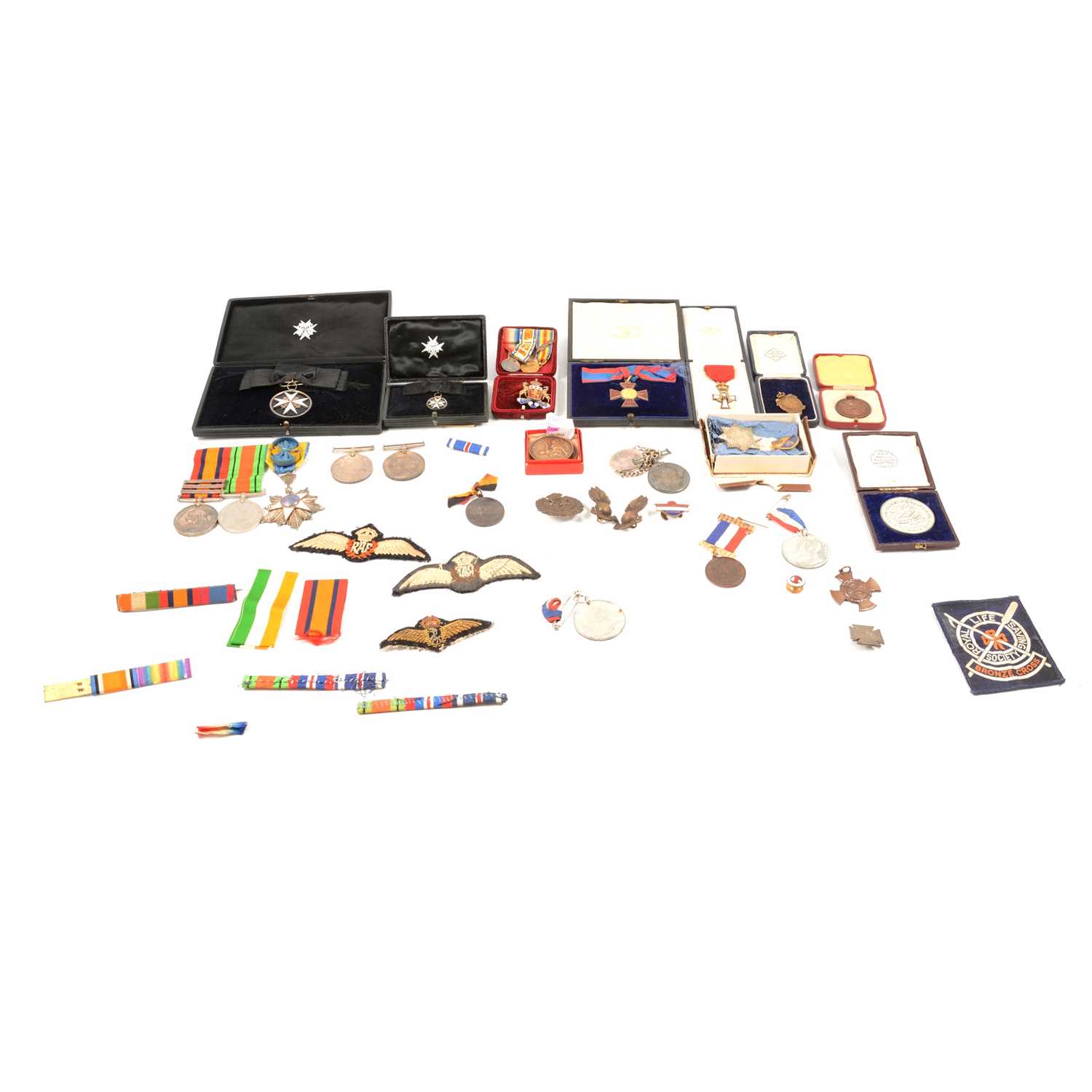

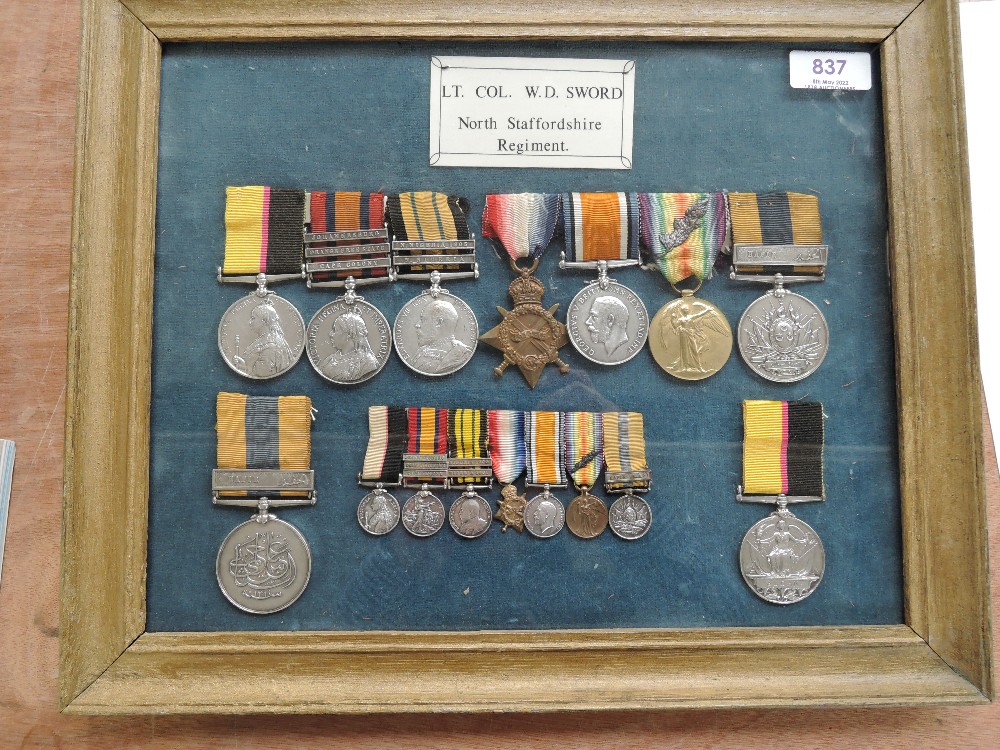
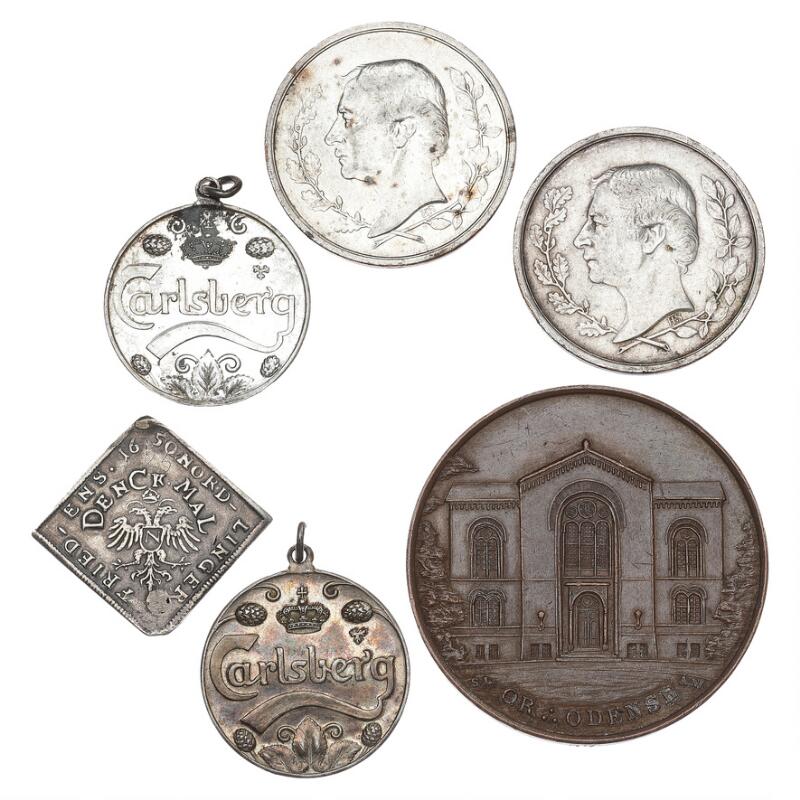



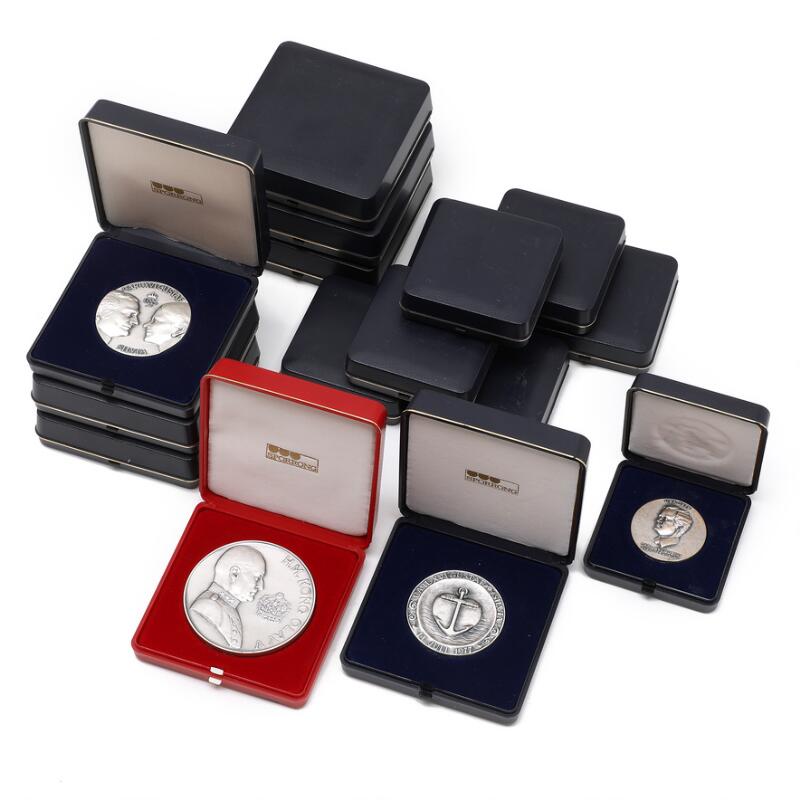
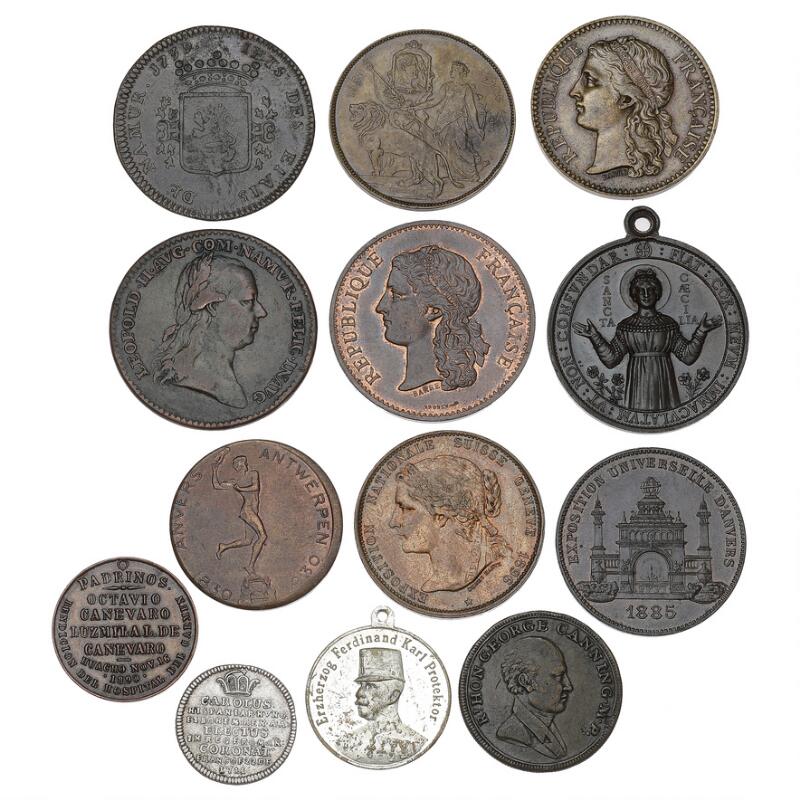
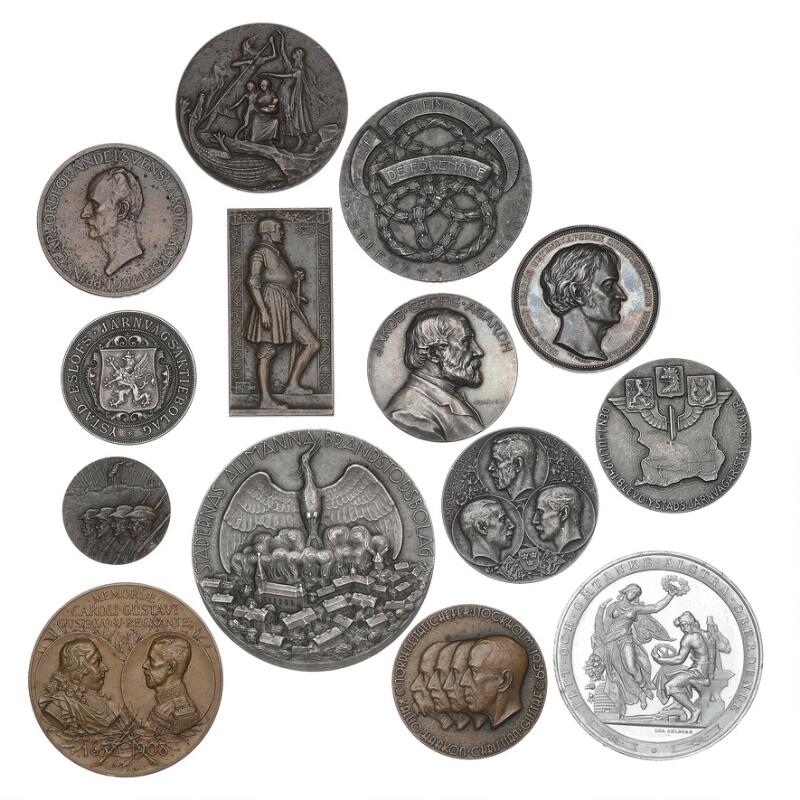



Testen Sie LotSearch und seine Premium-Features 7 Tage - ohne Kosten!
Lassen Sie sich automatisch über neue Objekte in kommenden Auktionen benachrichtigen.
Suchauftrag anlegen